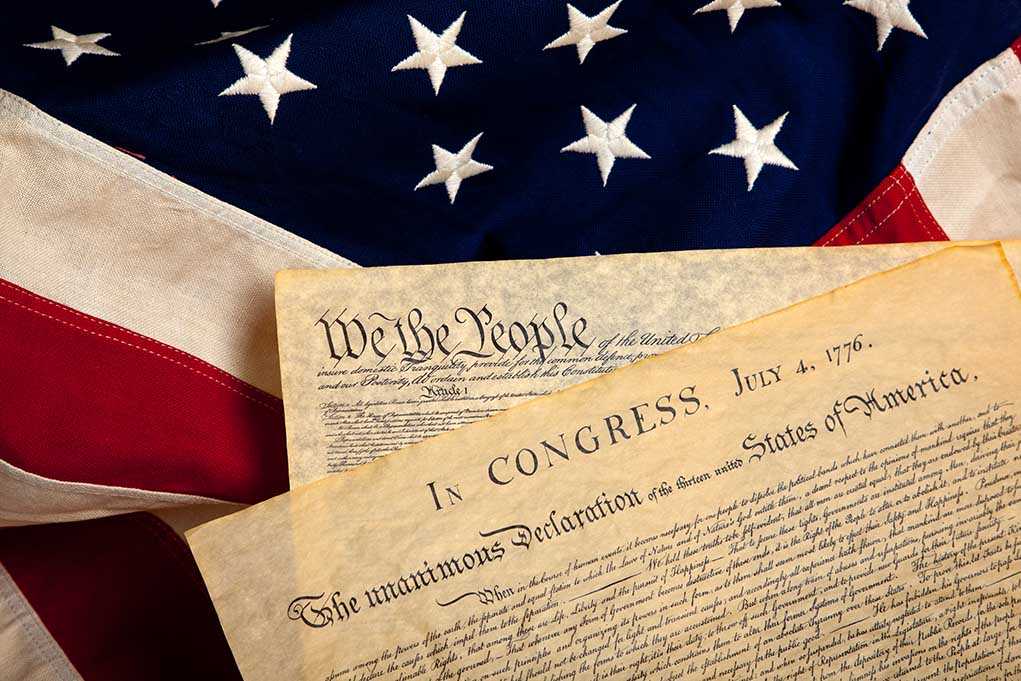
The true secret to the Founding Fathers’ enduring influence is not just in their words or signatures, but in the hidden rituals and relentless self-discipline that shaped every decision—and every page of American history.
Story Snapshot
- Benjamin Franklin, Thomas Jefferson, and John Adams built their leadership on rigorous daily routines, not luck or genius alone.
- The Founders’ habits—early rising, structured schedules, and self-examination—were deliberate strategies for resilience and clarity during chaotic times.
- Modern productivity experts still dissect and adapt these routines, though the context has drastically changed since the 18th century.
- Despite romanticized myths, the Founders’ actual habits were complex, sometimes inconsistent, and deeply human.
The Secret Engines Behind a Revolution
Beneath the powdered wigs and parchment, the Founding Fathers were relentless in their pursuit of personal mastery. Benjamin Franklin famously mapped out his days with military precision, rising at 5 a.m. to ask himself, “What good shall I do this day?” before diving into periods of work, study, and deliberate reflection.
These routines weren’t affectations—they were Franklin’s armor against the uncertainties of revolution and the distractions of colonial life. In an era when most Americans lived by the sun and seasons, Franklin’s self-imposed structure was a radical act of self-determination and a model for those around him. He evangelized time management and virtue by publishing his methods in Richard’s Almanack, inviting his compatriots to join a new, industrious culture.
Thomas Jefferson and John Adams, too, treated time as their most precious resource. Jefferson’s mornings were reserved for reading and correspondence, a practice that fortified his intellect and shaped his statesmanship. Adams, ever the moralist, believed discipline was the foundation of both private and public virtue. Yet, even as Adams admired Franklin’s structured approach, he remained skeptical—pointing out inconsistencies, such as Franklin’s tendency to sleep in during later years.
The Founders’ habits, documented in letters and journals, reveal not superhuman consistency, but a relentless striving for improvement. For Jefferson, this meant lifelong learning through books and debate; for Adams, daily self-interrogation and accountability. These routines provided ballast during the storms of war and politics, when chaos threatened to erode the very principles they championed.
Discipline, Self-Improvement, and the Birth of American Leadership
The Founders were products of the Enlightenment, but their real genius lay in translating abstract ideals into daily practice. Their brand of leadership was forged not in grand speeches, but in the quiet hours before dawn, the steady flow of ink across countless letters, and the nightly inventory of personal failings and triumphs.
Franklin’s daily questions—posed at sunrise and sunset—became a ritual of self-examination that modern psychologists might recognize as mindfulness. Jefferson’s meticulous record-keeping and reading lists laid the foundation for informed, rational governance. Adams’s correspondence, often laced with critiques of his own failures, modeled a humility rare among statesmen. Together, these habits formed an unspoken code: that greatness was not bestowed, but built, one disciplined day at a time.
The Founders’ routines set them apart from their European contemporaries, whose days were often shaped by inherited privilege rather than earned discipline. In early America, structure was a necessity; distractions were numerous, technology was primitive, and the stakes were existential. By documenting and sharing their methods, the Founders created templates for future leaders, embedding self-improvement into the DNA of American civic culture. Their influence extended far beyond their lifetimes, as generations of citizens and politicians adopted the ethic of industriousness and self-examination. The culture of “early to bed, early to rise” became both a national motto and a personal challenge.
Legacy, Myth, and Modern Reinterpretation
Today, Franklin’s daily schedule is dissected by productivity gurus, repackaged in apps, and referenced in leadership seminars. Yet the reality was never as simple as the myth. Franklin sometimes slept until 10 a.m., and not every Founder maintained perfect discipline. Their routines evolved with age, circumstance, and the relentless pace of nation-building. Critics warn against uncritical hero-worship, noting that the Founders’ context—handwritten letters, candlelit nights, the absence of digital distractions—was fundamentally different from today’s world. Still, the core lesson endures: intentional habits are the scaffolding of effective leadership, whether in 1776 or 2025.
Modern scholars and self-help advocates debate the relevance of 18th-century routines in a digital age. Some argue that Franklin’s brand of scheduled reflection and purposeful living is timeless, while others caution that imitation without adaptation risks superficiality. What is clear, however, is that the Founders’ private discipline enabled their public achievements. Their daily habits—mundane, messy, and sometimes contradictory—were the crucible in which a nation’s ideals were forged. For readers seeking meaning in their own routines, the Founders offer both inspiration and a reminder: greatness grows in the soil of daily choices, not distant dreams.
Sources:
Business Insider: Benjamin Franklin’s Daily Routine
Art of Manliness: The Founders’ Guide to Self-Improvement
Clockify: Benjamin Franklin’s Schedule
The Focus Course: Franklin’s Schedule











